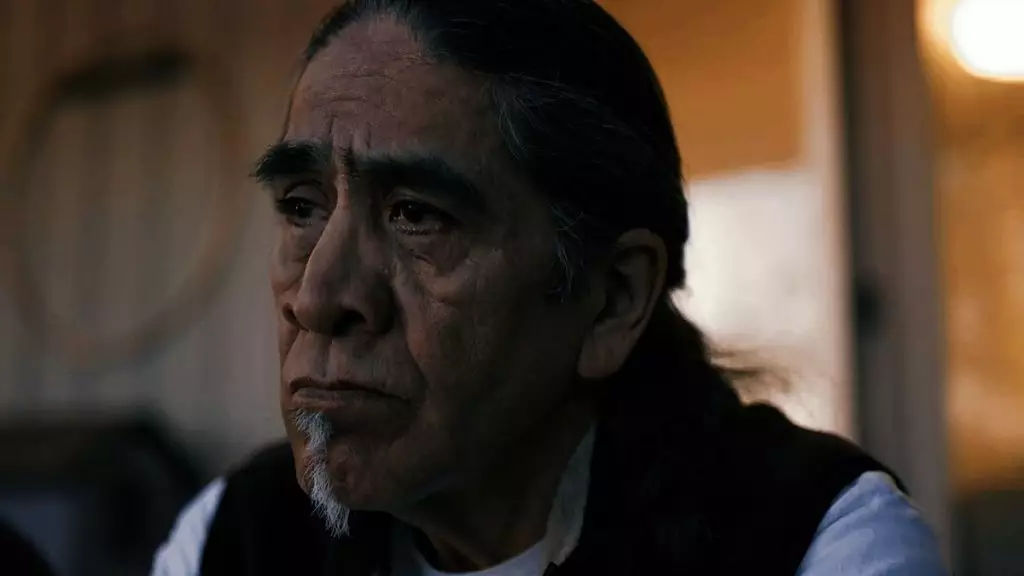Filmmakers Julian Brave NoiseCat and Emily Kassie have crafted a thought-provoking documentary that confronts the questions of morality and justice surrounding the Williams Lake First Nations community. Their film, Sugarcane, delves into the intergenerational trauma caused by the residential school system, shedding light on the forced family separation, physical and sexual abuse, and the destruction of First Nation culture and language. This article explores the profound impact of the film, highlighting the filmmakers’ empathetic storytelling and the resilience of the survivors and their descendants.
Saint Joseph Mission residential school stands as a tragic emblem of the 139 residential schools that existed in Williams Lake, British Columbia. These schools aimed to assimilate Indigenous youth into Euro-Canadian culture by forcibly removing them from their communities and suppressing their heritage and identities. Students endured deplorable living conditions, laborious tasks, and rampant abuse. The profound scars left by Saint Joseph Mission and other residential schools are evident in the testimonials of former students who recount physical, emotional, and sexual abuse, as well as the loss of their families and cultural heritage. The ruins of Saint Joseph Mission serve as a haunting reminder of a colonial policy that traumatized generations of Indigenous children.
It is crucial to recognize that Canada was not alone in perpetrating such atrocities. The United States also forced Indigenous children from reservations into government-run boarding schools, with the aim of assimilation into Eurocentric society. Schools like Pennsylvania’s Carlisle Indian School subjected students to brutal discipline, manual labor, and the suppression of their native languages and cultural practices. The documentary highlights that this system extended to 408 schools in the United States. NoiseCat’s personal connection to the subject matter, as his father attended one of these schools, adds an intimate perspective to the film, illustrating the collective harm of forced family separation and abuse.
Sugarcane tells the stories of individuals like Charlene Belleau, who transforms her own painful residential school experience into advocacy and activism. NoiseCat’s father, on the other hand, seeks personal healing. The film emphasizes the varied responses to trauma when violence targets entire populations, ranging from calls for justice to the instinctive desire for secrecy and denial. However, throughout the film, NoiseCat and Kassie maintain a deep sense of humanity and empathy, standing in solidarity with the Williams Lake First Nation community. Their visual storytelling captures the enduring scars left by the schools intended to erase their cultures.
Bearing Witness to Grief
As investigations into missing children continue, Sugarcane serves as a powerful witness, shedding light on the suffering that has been hidden in the shadows for far too long. The film explores the delicate balance between commemoration and protecting survivors from further trauma. By allowing space for conflicting perspectives within affected bands, the filmmakers demonstrate a community-centered approach to reconciliation. NoiseCat and Kassie’s documentary stands as a testament to the resilience of the Williams Lake First Nation, which persists despite the schools designed to eradicate their existence.
Driven by empathy and the determination of the affected communities, Sugarcane implores society to seek justice and reparations for the harms inflicted by the residential school system. It serves as a reminder of the humanity that resides within us all and the urgent need for healing and reconciliation. Through their compelling storytelling, NoiseCat and Kassie illuminate a dark chapter in history that demands acknowledgement and action.
Sugarcane is a poignant documentary that invites audiences to confront the profound and lasting intergenerational trauma caused by the residential school system. NoiseCat and Kassie’s film encapsulates the humanity, empathy, and resilience of the Williams Lake First Nation community. It calls on society to recognize the injustices of the past, seek truth and reconciliation, and work towards a more just and compassionate future. The voices that emerge from the shadows demand to be heard, and it is our duty to listen and act.


Leave a Reply